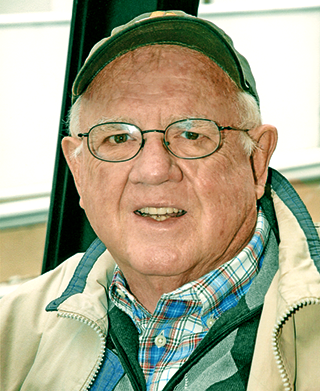.png)
Sustainable agriculture has many meanings depending on your particular point of view.
To consumers, sustainability means eating affordable, healthy and quality-assured food. To no-tillers, sustainability means optimizing yields and utilizing cost-effective farming practices while protecting the environment.
During a recent media event, Peter Eckes defined sustainability as farming solutions that maintain the right balance between economic success, environmental protection and social responsibility. The president of BASF Plant Science says it’s also about farmers working in a responsible way, producing large quantities of food and generating sufficient income without damaging the environment.
But regardless of how you define sustainability, it’s something innovative no-tillers have practiced for the past 40 years. And they often get irritated when folks think today’s farmers aren’t totally committed to sustainability.
To name just a few benefits, no-till increases wildlife numbers, improves soil health, reduces erosion and stores carbon. And as former University of Illinois ag economist Bob Thompson points out, much of the problem is due to the fact consumers don’t recognize the tremendous sustainability and efficiencies available with no-till.
American consumers care about sustainability, but many are still confused by what it really means. While consumers look mainly at quality, value and price when it comes to food, they’re also concerned about the impact of agriculture on the environment.
The results from a recent study sponsored by BASF pointed out several differences between growers and consumers in regard to sustainability.
Consumers have more trust and optimism for growers than is often suggested in the general media.
Both farmers and consumers feel farmland stewardship practices are much better today than in the past.
Consumers give growers more credit for being concerned about the environment in selecting pesticides than farmers actually do themselves.
Consumers believe growers place top priority on effectiveness and cost when selecting pesticides.
“Consumers trust growers more than is probably expected,” says Paul Rea, vice president of U.S. Crop Operations at BASF. “Based on our findings, consumers feel good about advances the agricultural industry has made and are asking growers to continue to place importance on environmental issues.”
While consumers believe organically grown food is the safest product to eat, growers believe conventionally grown food is much safer than consumers do. Surprisingly, growers place less trust in chemical companies than do consumers.
Markus Heldt, the president of the BASF Crop Production Division, says it’s disappointing that we don’t share the tremendous progress that’s been made in ag sustainability over the past 20 years with consumers. As an example:
New developments in corn production over the past 20 years have brought about a 37% reduction in the amount of ground needed to produce each bushel of corn.
Soil loss has decreased by 69%.
Irrigation efficiency has dropped water usage by 27%.
The energy needed to grow corn has dropped by 37%.
There’s been a 30% decrease in gaseous emissions from corn fields.
Held says GMO benefits need to be better communicated to consumers, even though 40 million farmers in the world are using biotech. We also need to educate consumers on carbon emissions and the benefits of practices like no-till in making ag more sustainable.
With the world’s population expected to reach over 8 billion people within 40 years, our appetite for food will grow at an alarming rate. To feed these folks and meet higher living standards in many developing countries, the Food and Agriculture Organization says we’ll have to double food output.
This must be accomplished while we deal with a growing and aging population, fighting urbanization, dealing with increasing energy demands, tackling global warming concerns and overcoming changes in world markets.
As leaders in innovation and sustainability over the past 4 decades, no-tillers will play a key role in feeding the world in the years to come.






